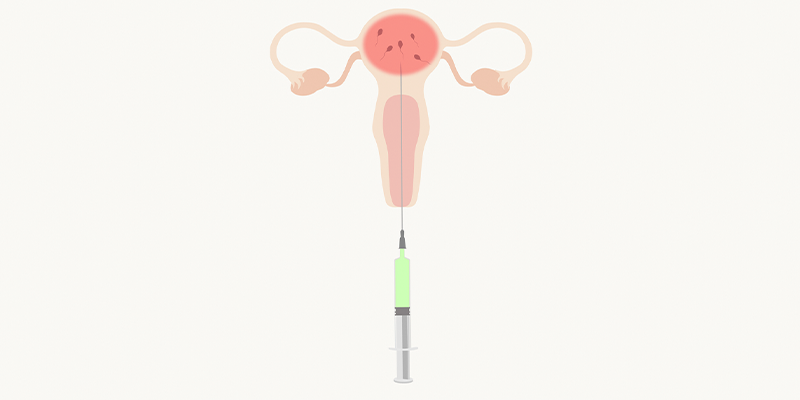Is IUI (Intrauterine Insemination) the right choice for you?

Infertility is the inability to conceive after a year of trying. It could be due to many reasons like sperm abnormalities, ovulatory dysfunction, tubal factors, endometriosis, etc. Fertility evaluation of both the male and female partners is highly essential to identify the root cause and treat it accordingly. Based on the couple’s age, lifestyle, associated medical conditions, duration of infertility, and baseline tests, a tailor-made fertility treatment plan can be used to help achieve parenthood.
Intrauterine insemination is a fertility treatment used for mild male factor and unexplained infertility. It entails the direct instillation of a processed semen sample in the uterine cavity at the time of ovulation.
IUI treatment is usually done in:
- Women with ovulatory dysfunction
- Women with mild endometriosis
- Men with ejaculatory issues, mildly reduced sperm motility or sperm count
- Unexplained infertility
- Hostile cervical mucus
- Cervical stenosis
- Ejaculatory dysfunction
- Sperm Donor treatment
IUI is not recommended for:
- Blocked fallopian tubes
- Moderate to severe endometriosis
- Severe male factor- very low sperm count or motility
IUI procedure step by step
In the natural process of conception, in every cycle, an egg develops in the ovary, which matures and is released in the fallopian tube around day 14. If during that time the couple has unprotected intercourse, sperms from the partner are deposited in the vagina. These sperms travel through the vagina, cervix, and uterine cavity to the fallopian tube, where it meets the egg and fertilization takes place. Intrauterine insemination procedure can be done in a natural cycle without the use of medications or can be done along with ovarian stimulation as well. In an IUI cycle, medicines are given to ensure the development of the egg in the ovary. The cycle is monitored with the help of serial ultrasounds. When the egg has appropriately grown, injections are given to release the egg. At the time of egg release, a processed semen sample is injected into the uterine cavity.
Before the start of the IUI process, both the male and female partners have to undergo a series of tests like semen analysis, blood tests, ultrasound, tubal patency testing, etc.
This is a painless procedure and doesn’t take much time. After the IUI procedure is over, the woman has to rest for 20-30 minutes after which one can go home. After 2 weeks, blood tests are done to confirm pregnancy.
How to improve the IUI success rate?
Several factors influence the IUI success rate but there are certain things you can do to improve the chance of conception.
Avoid rigorous exercise:
Moderate exercise like walking or yoga can be good for you as these can improve blood flow to reproductive organs. Heavy strenuous exercise has to be avoided.
Have a balanced diet:
A healthy diet containing nuts, whole grains, and eggs can improve your health and help in the success of IUI treatment. Drinking a minimum of 3 liters of water per day is essential.
Good sleeping pattern:
7-8 hours of sleep is necessary which can reduce stress thereby improving mental health.
Have realistic expectations:
IUI has a success rate of 10 -20%. Have a positive mindset as IUI failure doesn’t put an end to your parenthood dream.
What are the signs of conception after IUI?
A urine pregnancy test or serum hCG levels confirm conception after IUI.
Advantages of IUI treatment for pregnancy
- Outpatient procedure
- Minimally invasive
- Less expensive








